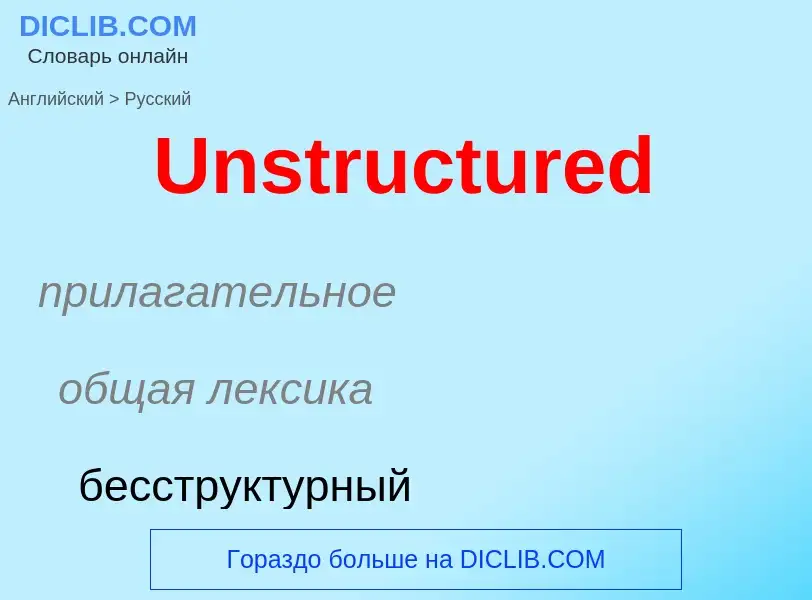Μετάφραση και ανάλυση λέξεων από την τεχνητή νοημοσύνη ChatGPT
Σε αυτήν τη σελίδα μπορείτε να λάβετε μια λεπτομερή ανάλυση μιας λέξης ή μιας φράσης, η οποία δημιουργήθηκε χρησιμοποιώντας το ChatGPT, την καλύτερη τεχνολογία τεχνητής νοημοσύνης μέχρι σήμερα:
- πώς χρησιμοποιείται η λέξη
- συχνότητα χρήσης
- χρησιμοποιείται πιο συχνά στον προφορικό ή γραπτό λόγο
- επιλογές μετάφρασης λέξεων
- παραδείγματα χρήσης (πολλές φράσεις με μετάφραση)
- ετυμολογία
Unstructured - translation to ρωσικά
прилагательное
общая лексика
бесструктурный
неструктурированный
расплывчатый
[ʌn'strʌktʃəd]
прилагательное
общая лексика
расплывчатый
неопределённый
специальный термин
бесструктурный
неструктурированный
Ορισμός
Βικιπαίδεια
Unstructured data (or unstructured information) is information that either does not have a pre-defined data model or is not organized in a pre-defined manner. Unstructured information is typically text-heavy, but may contain data such as dates, numbers, and facts as well. This results in irregularities and ambiguities that make it difficult to understand using traditional programs as compared to data stored in fielded form in databases or annotated (semantically tagged) in documents.
In 1998, Merrill Lynch said "unstructured data comprises the vast majority of data found in an organization, some estimates run as high as 80%." It's unclear what the source of this number is, but nonetheless it is accepted by some. Other sources have reported similar or higher percentages of unstructured data.
As of 2012, IDC and Dell EMC project that data will grow to 40 zettabytes by 2020, resulting in a 50-fold growth from the beginning of 2010. More recently, IDC and Seagate predict that the global datasphere will grow to 163 zettabytes by 2025 and majority of that will be unstructured. The Computer World magazine states that unstructured information might account for more than 70–80% of all data in organizations.[1]

